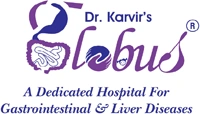Flatulence: Causes, Symptoms, Prevention, and Treatment
Struggling with Excessive Gas? What You Need to Know About Flatulence! Have you ever found yourself in an uncomfortable situation because of excessive gas? Flatulence is a common digestive issue that affects millions of people worldwide, causing embarrassment and discomfort. But what exactly causes flatulence, and how can you manage it effectively? Whether you're dealing with occasional bloating or chronic gas problems, understanding the causes, symptoms, prevention, and treatment of flatulence is essential for improving your quality of life.

What Are the Primary Causes of Flatulence?
Flatulence occurs when excess gas builds up in the digestive system and is expelled through the rectum. Several factors contribute to this condition:
- Dietary Choices: Consuming foods that are high in fiber, such as beans, lentils, broccoli, and carbonated drinks, can increase gas production. Additionally, artificial sweeteners like sorbitol and mannitol found in sugar-free products can also lead to gas.
- Digestive Disorders: Conditions like irritable bowel syndrome (IBS), lactose intolerance, and celiac disease can impair digestion, leading to increased gas production.
- Gut Bacteria: The bacteria in your intestines play a significant role in breaking down food. An imbalance in these bacteria can result in excessive gas production.
Understanding the root causes of flatulence is the first step toward managing and preventing it effectively.
- Frequent Burping or Passing Gas: Regularly needing to release gas through belching or flatulence.
- Bloating and Abdominal Distension: A feeling of fullness or swelling in the abdomen.
- Abdominal Pain or Cramping: Discomfort or sharp pains in the stomach area caused by gas buildup.
- Gurgling Sounds in the Abdomen: Audible noises resulting from the movement of gas through the intestines.
- Unpleasant Odor: Gas may carry a foul smell, especially if it contains sulfur compounds.
If these symptoms persist or significantly impact your daily life, it may be time to consult a healthcare professional.
What Are Effective Strategies to Prevent Flatulence?
Preventing flatulence involves making mindful choices in your daily habits and diet. Here are some effective strategies:
- Modify Your Diet: Identify and limit foods that trigger gas production. Common culprits include beans, onions, carbonated beverages, and certain vegetables like cabbage and cauliflower.
- Eat Slowly and Chew Thoroughly: Taking your time to eat can reduce the amount of air you swallow, thereby minimizing gas buildup.
- Avoid Chewing Gum and Hard Candy: These can increase the amount of air you swallow, leading to more gas.
- Stay Hydrated: Drinking plenty of water aids digestion and helps prevent constipation, which can exacerbate gas problems.
- Incorporate Probiotics: Consuming probiotic-rich foods like yogurt or taking supplements can help maintain a healthy balance of gut bacteria, reducing gas production.
Implementing these preventive measures can significantly reduce the occurrence of flatulence and improve your digestive health.
When Should You Seek Treatment for Flatulence?
While occasional gas is normal, persistent or severe flatulence may indicate an underlying health issue. Consider seeking medical advice if you experience:
- Chronic Bloating and Pain: Ongoing abdominal discomfort that doesn't resolve with dietary changes.
- Unexpected Weight Loss: Losing weight without trying can be a sign of a more serious digestive disorder.
- Changes in Bowel Habits: Persistent diarrhea or constipation accompanying gas problems.
- Blood in Stool: This is a red flag for more severe conditions like inflammatory bowel disease or colorectal cancer.
Early diagnosis and treatment of underlying conditions can prevent complications and improve your overall health.
What Treatment Options Are Available for Managing Flatulence?
Treating flatulence effectively depends on its underlying cause. Here are some common treatment approaches:
- Over-the-Counter Remedies: Products containing simethicone can help break down gas bubbles, providing relief from bloating and discomfort.
- Dietary Supplements: Lactase supplements can aid those with lactose intolerance, while digestive enzymes can assist in breaking down problematic foods.
- Prescription Medications: For severe cases linked to digestive disorders, doctors may prescribe medications to manage symptoms or treat the root cause.
- Lifestyle Modifications: Incorporating regular exercise can enhance digestion and reduce gas buildup. Additionally, practicing stress-reducing techniques like yoga or meditation can improve overall digestive health.
- Surgical Intervention: In rare cases where flatulence is caused by structural issues in the digestive tract, surgery may be necessary.
Managing flatulence effectively involves understanding its causes, recognizing the symptoms, and implementing preventive and treatment strategies. While occasional gas is a normal part of digestion, persistent or severe flatulence may require medical attention to rule out underlying health issues. By adopting healthy eating habits, making mindful lifestyle choices, and seeking professional advice when necessary, you can significantly reduce the discomfort and embarrassment associated with excessive gas.
If you’re struggling with persistent flatulence and seeking expert guidance, look no further than the Best Gastroenterology Hospital in Mumbai. Our specialized team of gastroenterologists is dedicated to providing comprehensive care for all digestive health issues, including flatulence. With advanced diagnostic tools and personalized treatment plans, we ensure you receive the best possible care tailored to your unique needs. Book your appointment today and take the first step towards a healthier, more comfortable digestive system.
For more information or to schedule a consultation, visit the website or contact the Best Gastroenterology Hospital in Mumbai. Let our experts help you achieve optimal digestive health and improve your quality of life.
Others Condition:
Bloating | Cancers of Stomach, Intestine & Liver | Constipation | Hirshsprung’s Disease | Gallstone | Dysphagia | Inflammatory Bowel Disease | Pancreatitis | SIBO | Barrett’s Esophagus | Blood in Stools / Vomitus | Celiac Disease | Diarrhea | Fatty Liver | Gerd | Irritable Bowel Syndrome | Piles



